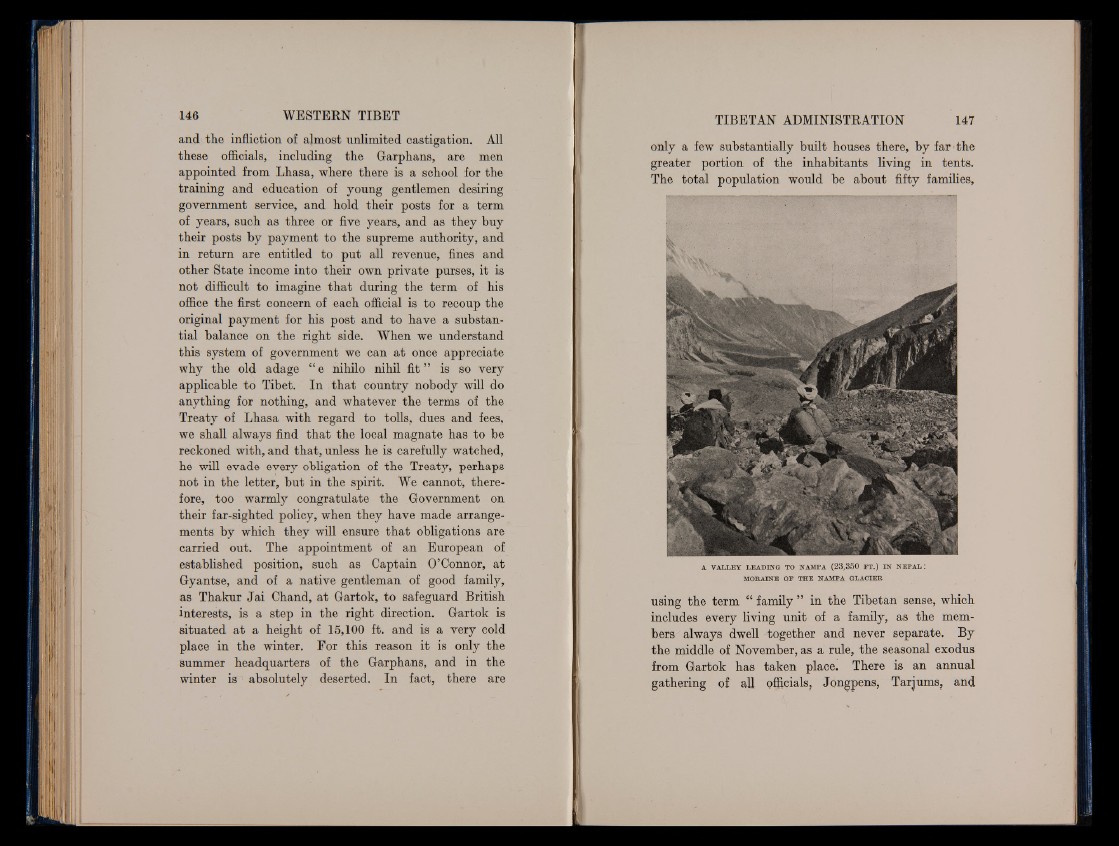
and the infliction of almost unlimited castigation. All
these officials, including the Garphans, are men
appointed from Lhasa, where there is a school for the
training and education of young gentlemen desiring
government service, and hold their posts for a term
of years, such as three or five years, and as they buy
their posts by payment to the supreme authority, and
in return are entitled to put all revenue, fines and
other State income into their own private purses, it is
not difficult to imagine that during the term of his
office the first concern of each official is to recoup the
original payment for his post and to have a substantial
balance on the right side. When we understand
this system of government we can at once appreciate
why the old adage “ e nihilo nihil f it” is so very
applicable to Tibet. In that country nobody will do
anything for nothing, and whatever the terms of the
Treaty of Lhasa with regard to tolls, dues and fees,
we shall always find that the local magnate has to be
reckoned with, and that, unless he is carefully watched,
he will evade every obligation of the Treaty, perhaps
not in the letter, but in the spirit. We cannot, therefore,
too warmly congratulate the Government on
their far-sighted policy, when they have made arrangements
by which they will ensure that obligations are
carried out. The appointment of an European of
established position, such as Captain O’Connor, at
Gyantse, and of a native gentleman of good family,
as Thakur Jai Chand, at Gartok, to safeguard British
interests, is a step in the right direction. Gartok is
situated at a height of 15,100 ft. and is a very cold
place in the winter. For this reason it is only the
summer headquarters of the Garphans, and in the
winter is absolutely deserted. In fact, there are
only a few substantially built houses there, by far the
greater portion of the inhabitants living in tents.
The total population would be about fifty families,
A VALLEY LEADING TO NAMPA (23,350 FT.) IN NEPAL:
MORAINE OF THE NAMPA GLACIER
using the term “ family ” in the Tibetan sense, which
includes every living unit of a family, as the members
always dwell together and never separate. By
the middle of November, as a rule, the seasonal exodus
from Gartok has taken place. There is an annual
gathering of all officials, Jongpens, Tar] urns, and